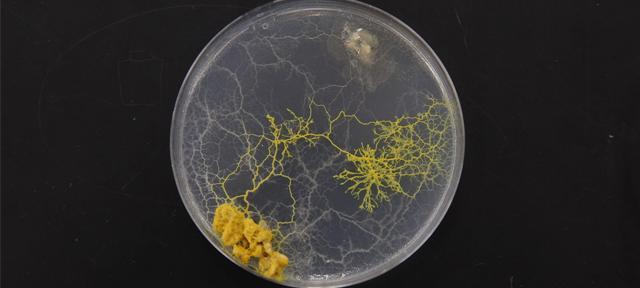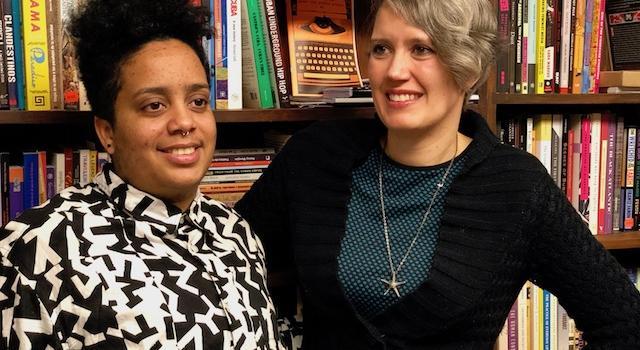Hampshire College Welcomes First Non-Human Scholars-In-Residence

Hampshire College is proud to announce the founding of the world's only academic program for non-human species. The first scholars-in-residence, plasmodial slime molds known as Physarum polycephalum, arrived from Carolina Biological Supply last month, and have moved into a dedicated office in the Cole Science Center.
"We are delighted to have representatives of the Physarum genus join our academic community," says Eva Rueschmann, Dean of Faculty & Vice President for Academic Affairs. “As they help solve important problems from a non-human perspective, these superorganisms promise to greatly enhance intellectual life on campus by helping us all think about and see the world without our normal human biases."
The initial research focus of the plasmodial scholars-in-residence will be socioeconomic. "Slime molds have navigated complex ecosystems such as forest floors for a billion years, proving themselves to be some of the foremost optimizers on the planet," notes Hampshire biology professor and principle investigator Megan Dobro. Their optimization abilities will be enlisted to address global problems ranging from food insecurity to income inequality. Simulations of hypothetical solutions will be undertaken inside plastic petri dishes, aided by a team of student research assistants.
Professor Dobro will be overseeing these student assistants as they explore scientific methods for engaging with slime mold as a modeling system. “As a cell biologist, I’m fascinated by their acellular properties,” Dobro continues.
Faculty and students across campus – in philosophy and architecture, mathematics and public health, economics and public policy, ethics and studio arts – will bring questions and perspectives from their research to the table too. “Bringing together a rigorous interdisciplinary cohort to address urgent human issues from a new vantage point is what this academic program is all about,” says Hampshire College Art Gallery’s director and project co-PI, Amy Halliday.
According to experimental philosopher and co-PI Jonathon Keats, human liaison to the slime molds, Physarum will likely provide socioeconomic insights of more than academic interest. "I anticipate that we'll be communicating their findings to the World Bank and the UN," he says. "Plasmodial slime molds are superorganisms, meaning that their self-interest is inseparable from their collective interest. The same is true of us humans, only our society doesn't realize it yet."
The Center for Plasmodial Research will host visiting scholars of the Physarum polycephalum species through 2019. Hampshire faculty and students will work with Megan Dobro, Jonathon Keats, and Amy Halliday to facilitate and disseminate the organisms' research. The first Plasmodium Symposium is scheduled to take place at the Hampshire College Art Gallery in the spring of 2018.
Media Coverage:
- Wired- The latest Jonathan Keats intervention
- Daily Hampshire Gazette-Slime in residence at Hampshire College
- Big Think- Slime Molds Join the Faculty at a Northeastern College
- Daily Hampshire Gazette-Editorial: Campus research with global impact



